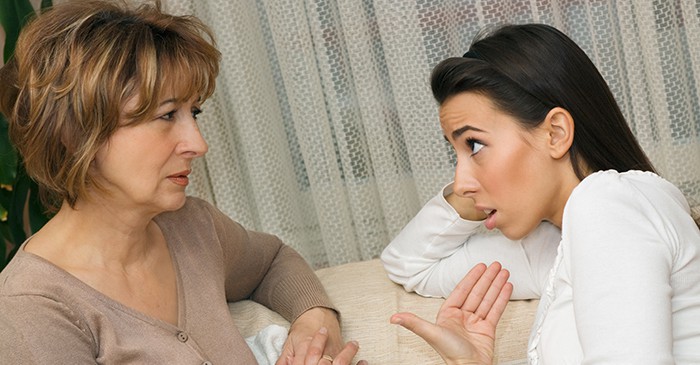Have you overheard your teen talking about “skittles,” “orange crush” or “red hots” lately? Don’t immediately assume the conversation is about junk food. If any of these terms have become part of your teen’s lingo, it may be time to get the facts on medicine abuse. Haven’t heard your teen use this slang? Read on anyway. Awareness is the first step in prevention.
The Surprising Connection Between “Skittles” & Medicine Abuse
When we think of drug abuse, we tend to immediately think of more commonly abused substances like alcohol and marijuana. However, it’s important for parents to be aware of all substances that can be abused. Chances are, there’s a substance in your household that your teen could easily obtain and abuse. While less well known, dextromethorphan, also known as DXM, can be found in almost any medicine cabinet. DXM is the active ingredient in most over-the-counter (OTC) cough medicines. While safe and effective when taken according to labeling instructions, DXM can provide a temporary buzz and result in some nasty side effects if it is consumed in large quantities.
Sadly, studies show that teenage abuse of cough medicine is more common than you might think: one out of three teens knows someone who has abused cough medicine to get “high” and approximately one out of 30 teens reports abusing it themselves.
It’s never fun to think about how our teens might be engaging in risky behavior, but we can take a proactive approach when it comes to the prevention of medicine abuse.
3 simple steps for staying ahead of the game and keeping your teen safe
- Talk to your teen. Even though it might not seem like they’re listening, they are. Talking to your teen about medicine and drug abuse actually works! Teens who learn about the risks of drugs from their parents are 50 percent less likely to use drugs. If you’re having trouble starting the conversation, it might help to sit down with your teen and watch videos of real teens who have abused DXM. After watching the videos together, you can start the discussion by asking your teen what they thought about the stories.
- Monitor your home and your teen. No, this doesn’t mean you have to become a helicopter parent overnight, but keeping track of the medicine cabinet is a good idea. Make a special note of medicines in your home that contain dextromethorphan, so you can more easily notice if something goes missing. You can also observe your teen’s behaviors and surroundings for warning signs of abuse.
- Share your knowledge. Make sure other parents in your community are aware of the risks of drug and medicine abuse as well. Here are some resources you can use to help you share what you’ve learned. At the end of the day, it takes a village to keep our teens healthy, happy and safe.
For more information on how to prevent teen OTC cough medicine abuse, visit Stop Medicine Abuse. And be sure to share this post, in hopes that we can spread this message to all parents of teens and future teens.
About the author: Jessica Belitz is a community outreach coordinator for the Blount Memorial Foundation. As the manager of the Foundation’s Drug Free Communities (DFC) grant, Jessica’s passion for substance abuse prevention has grown. Now that she is the mother of her young daughter, Rory Bay, she is even more passionate about the issue, which is one of the reasons why she joined The Five Moms to support the Stop Medicine Abuse campaign. Join the conversation by following Stop Medicine Abuse on Facebook and Twitter.




